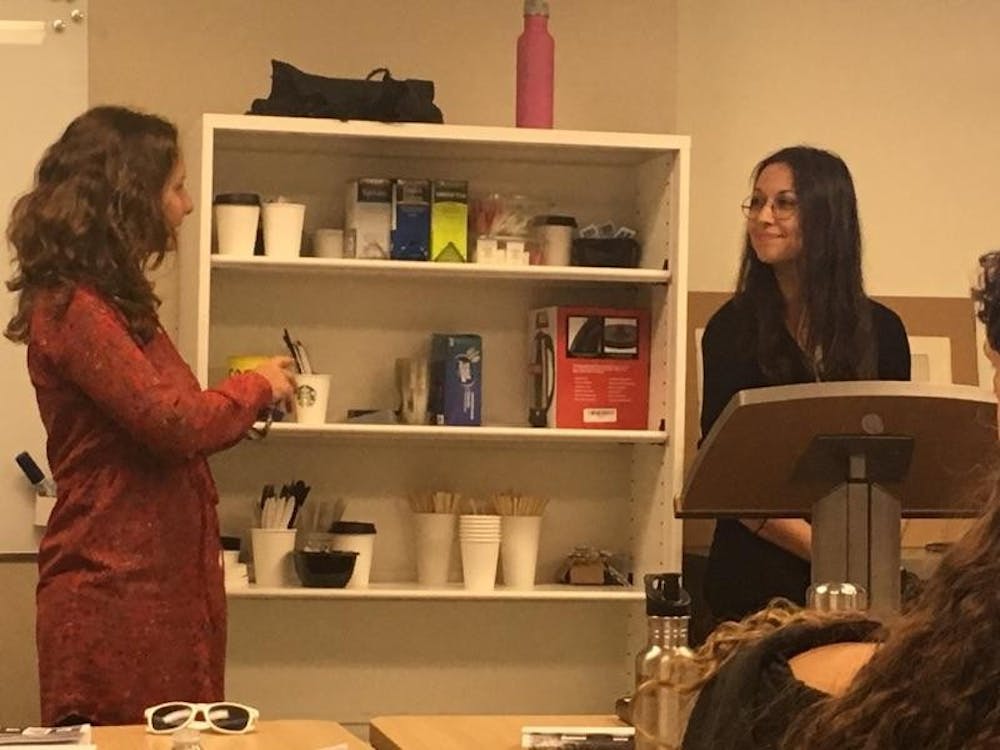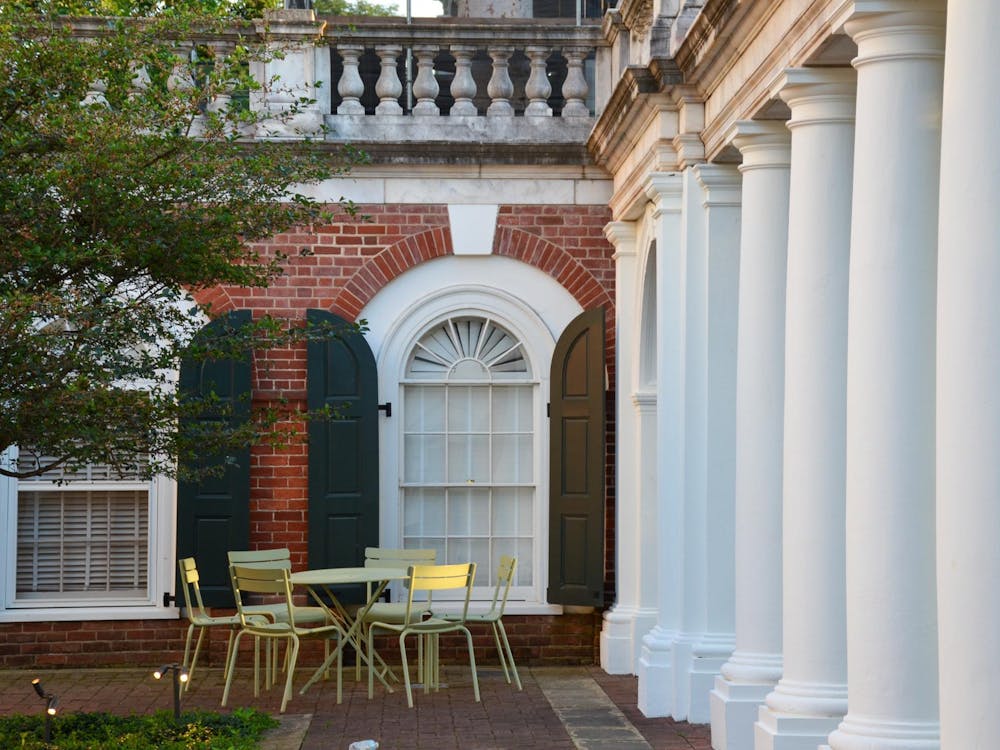The Graduate Student Coalition for Liberation, including graduate students from multiple Humanities disciplines at the University, presented the “Charlottesville Syllabus” at Wilson Hall Thursday as a part of this year’s Humanities Week at the University sponsored by the Institute for Humanities and Global Culture.
The GSCL produced the Charlottesville Syllabus through a zine accessible online for anyone looking to be more informed about the history of racism, inequality and public protest in Charlottesville and at the University. Zines are short, self-published work by individuals or groups and are produced outside mainstream publication centers.
For the past few years, Humanities Week has attempted to bring students, faculty, and University guests together to use areas of expertise in discussions on contemporary topics. This year’s theme is “Civil Resistance” in the context of Charlottesville and the University but also nationally as well.
Emma Hendrix, a third-year Architecture student and student coordinator for Humanities Week, said she was approached by the GSCL about hosting the event.
“We wanted to highlight what people are doing to shake up the status quo,” Hendrix said. “We had in mind events that people wouldn’t normally think of as being a form of resistance.”
The presenters were English doctoral candidates Eva Latterner, Sophie Abramowitz and Maya Hislop, as well as Marc Mazique of the University Advancement Department.
The GSCL produced their zine shortly after events of Aug. 11 and 12 when white nationalists marched on the Lawn and held a deadly rally the following day.
“At the time we had made this with the intention of illuminating what was happening,” Abramowitz said. “Contextualizing the events in the longer history of our town … on how statues displaced black Charlottesville residents. The syllabus is a demystification tool.”
Latterner and Abramowitz previously co-authored a piece on Slate with Gillet Rosenblith on how Confederate statues in Charlottesville “helped decimate the city’s historically successful black communities”.
Mazique’s portion of the presentation highlighted the problem of exercising civility and civil discourse when engaging in civil protest.
“Civility is generally seen as a norm in practice of social interaction... cultivating the conditions of mutual respect,” Mazique said. “Fundamental to its practice is a rejection of ways of relating that can be seen as confrontational or provocative to others and the emphasis on seemingly objective, rational reality over subjective emotional experience.”
Mazique added that practicing civility in an effort to achieve equality reinforces the status quo of of inequality.
“All too often [civility] is enforced as if we’ve already reached a state of equity,” Mazique said. “All folks lives and experiences are not equally represented in this society… [civil discourse] expresses a yearning to reach the destination many want to get to, but does not make the efforts to reach that destination.”
The zine’s format is that of an annotated bibliography divided into sections of interest, with linked sources and is accessible for free through the University’s library system. Sections include “The Lost Cause, Memorialization, and Charlottesville’s Confederate Statues” and “Slavery and Thomas Jefferson’s University.”
Documents are listed by title and date of release, and beneath each title the GSCL gives a short explanation of the material. If accessed online, the syllabus provides a hyperlink directly to the material.
Although English students organized the presentation for Humanities Week, the GSCL is interdisciplinary, combining the research efforts of many graduate students. In an interview with The Cavalier Daily, Abramowitz and Latterner spoke on how the Coalition came about and how it became interdisciplinary.
“It happened pretty organically,” Latterner said. “A lot of graduate students came together to think about how we’re going to deal with the ‘alt-right’ and Klan coming to town. Through conversations happening in a lot of places, I think we found a critical mass of grad students across different departments who all wanted to do something together.”
However, Abramowitz said she lamented the lack of students perspectives outside of the humanities departments.
“One pitfall of it happening organically is that we don’t have many science or engineering graduates in the group and we would really welcome that,” Abramowitz added.
Abramowitz also spoke on the Coalition’s complicated relationship to the University as an institution.
“On a broader scale, we are conscious of the University's mishandling of the white supremacist organization this summer,” Abramowitz said. “Emancipation Park was originally founded as Robert E. Lee Park … Edwin Alderman gave the dedication to that park … Being legitimated by this source of power, the same source that Richard Spencer used to legitimize the white supremacist rallies, complicates this project.”
The Charlottesville Syllabus can be found at the GSCL website.







